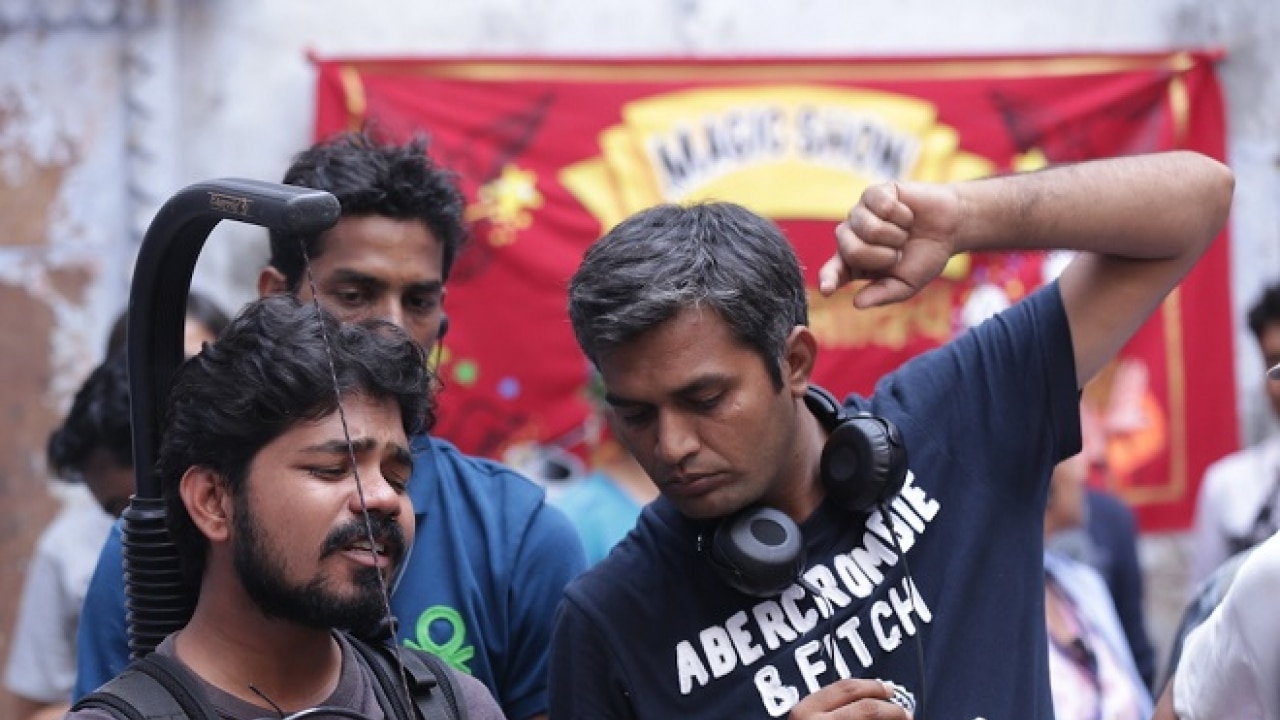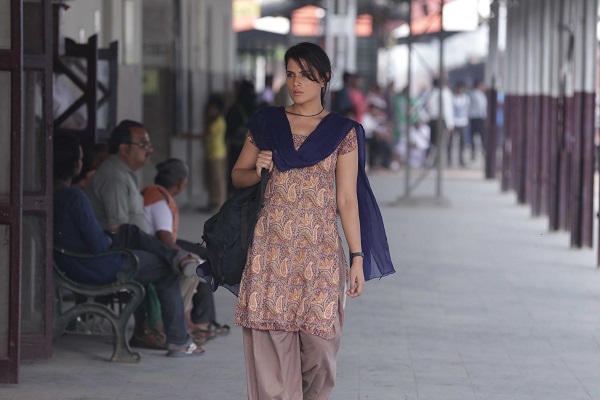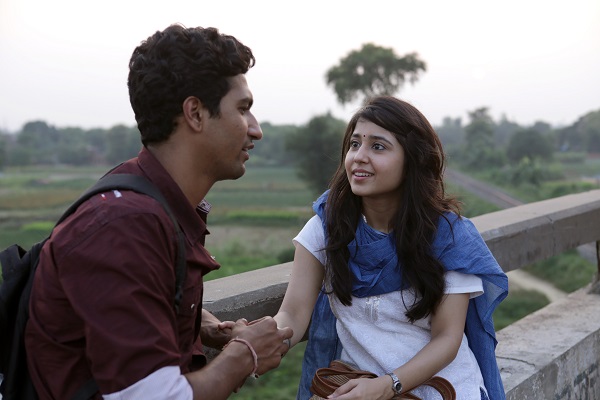
At the 2015 Cannes Film Festival, Neeraj Ghaywan's debut film Masaan made history when it won the FIPRESCI Prize, awarded by the International Federation of Film Critics, and then went on to win the special jury prize in the Un Certain Regard section, a first for a Hindi film.
Despite glowing reviews and critical success, Ghaywan says he's trying to shake these laurels off and concentrate on making his next film.
His association with films began when he started writing for 'Passion for Cinema', a film blog that was very popular a few years ago. At a time when Ghaywan was extremely frustrated with his corporate job, the blog was his outlet. "I had this underground life, blogging for Passion for Cinema and Anurag (Kashyap) wrote there as well. I went from commenting, to blogging to being editor of the website," he says. To get closer to the world of filmmaking, Ghaywan started working in film marketing but was still not satisfied. The turning point came in the form of a phone call from Kashyap asking Ghaywan to assist him on Gangs of Wasseypur. Here, Ghaywan talks about the journey from that phone call to making his acclaimed debut—
How does the Cannes win feel?
I wish I could say I had dreamt of the day. I did not. We thought we’ll just go the festival and come back. All these laurels are overwhelming. I don’t want it to sink in. I want to stay open. I want to stay honest. Without honesty and humility I don’t think I’ll be able to make the kind of films I want to
Can you talk about the film’s journey from putting it down on paper to getting it made?
The process started six years ago when I living the corporate life. A colleague told me about the ghats in Varanasi where they cremate dead bodies, day in and day out. What fascinated me was that the people who do this, for them, it’s just a job. There is no emotional attachment. I was wondering what their world view would be and their appreciation towards quality of life. That fascinated me and I concocted a short story right then. Then I forgot about it. Maybe the story haunted me subconsciously and forced me to quit my job. Just before I was about to enter the film world, I tried to write a draft of the story. It was hideous. It was very, very bad. Thank god I chucked it! After Gangs of Wasseypur was done and Varun (Grover) came on board, we added two more stories to the one I had in mind, and we had a skeleton of the film. Then we went to Varanasi to do the research and there our world opened up to a lot of interesting stories. We derived from the truth and poured all of it into the script. After that, Varun went and wrote the entire screenplay by himself. We took it to the Sundance Screenwriters Lab, where it was mentored and honed.

Phantom has been my home and Anurag and Vikram (Motwane) have been championing the script for a long time. We were looking for financiers and there was apprehension with the conventional ones. Manish Mundra was like an angel on this film. He met me for an hour, and the next day I narrated the story to him. He immediately had a chemistry with us and he financed us. Guneet Monga and Shaan Vyas with Sikhy Entertainment took the film international. Last year, they took it to Cannes to pitch it to the French producers Melita Toscan Du Plantier and Marie Jean Pascal. They in turn got Pathe Films and Arte France on board. That’s when it became big, in the sense that it had a world scope and it could travel to multiple places.
The film released in France, before it did India. It wouldn’t have been possible if we were just an Indian production. To benefit from their advanced post production facilities and to have that Indo-French cultural exchange really helped the film.
What was your experience of Varanasi?
Varun and I found that Varanasi is a place you cannot just observe, you ought to live it. It’s an experience which cannot be articulated in any language. If you can go like an urban dweller and document it from a distance, it won’t work. We had to become Banarasi, we actually became them. We surrendered ourselves. That’s how the place welcomed us and made us one of them. We got access to stay on the ghat, stay with the people, see and smell it. That also helped the actors to get into the skin of their roles.
Travelling with the film abroad, did you feel Masaan broke stereotypes of what an Indian story could be?
When you see films that travel to the festival, you see that there is a formula there. You’ll show the real India, real locations, real actors, but you’ll portray emotions that are European in sensibility because they are very internal, they don’t show emotions like we do. We wear our emotions on our sleeve and that’s what I find missing (from other films). Muted emotions look good on camera, but if you’re getting real, why not keep the emotions also real? I think that’s why we didn’t become just another Cannes film. We retained Indian emotion and that’s why I think there was so much buzz about the film.
Given small town India is not to always visible in our cinema, do you expect the film break stereotypes in India as well?
In our films generally, small towns are either mocked upon or it’s an exterior, outsider point of view. We don’t look at them internally. Also, small towns have become modern. The divide between big and small cities is going away. That is not being shown.
Any film, however progressive, is saying, ‘Oh these people are like this and these people are like that’ like they don’t know how to behave. But modern small cities of India are in that space of transition. We now have intellectual capital but there is this thing of being shackled by your own moral traditions. That irony is what you will see in the film. That is the paradigm shift that we have attempted.

Who are the filmmakers you have been influenced by?
The Dardenne brothers. They talk about the working class and their moral crises. They never go into the socio-political aspect of it. It’s the same with Masaan. There is a socio-political angle of casteism and morality, but at the end, the deep emotions are the core of the story. Of course, the Kashyap influence is mandatory. Also, Gulzar. He observes personal relationships very closely with such a real world perspective while being poetic.
There has been a resurgence of small films in the last year, where they may have not crossed into the mainstream, but they are not on the peripheries anymore either.
People don’t want the whole song and dance structure even if you package it with the star system and the Rs100 crore bandwagon. That is a formula and that formula doesn’t work every time. People want stories and this year has been a very big reminder of that. Huge blockbusters have not done well but films backed by great scripts have done very well. People are also more aware because we’re globally connected through internet and social media, they are watching more interesting films. Hollywood films are starting to be competition to Bollywood films.
For you, will success mean critical acclaim, box office success or both?
I just want to make realistic films in a fashion that I like. I left behind a life of huge money and shed my skin. So there is no penchant for glamour.
How would you define success then?
Making films with extreme honesty that touches people. The film’s India release will be a true test. The box office success of the film will affect it, but it won’t affect me. We never thought of it that way. We wanted to make a film we would enjoy. Between Varun and I, we critique films a lot. So we wanted to make a film where we are honest and we like it.
Doesn't some amount of financial success dictate getting the next film made?
Of course. I still have rent issues (laughs) but as long as I can get by, I’m happy.